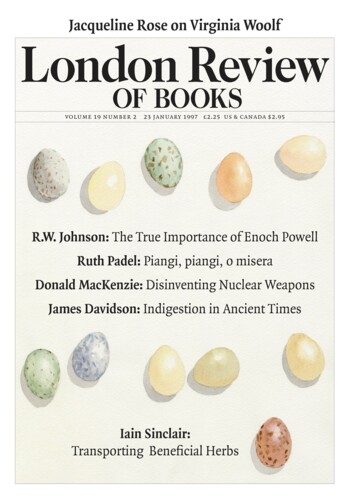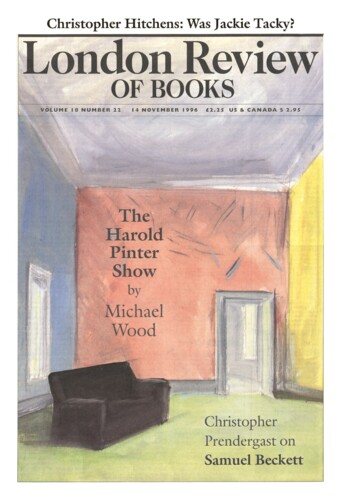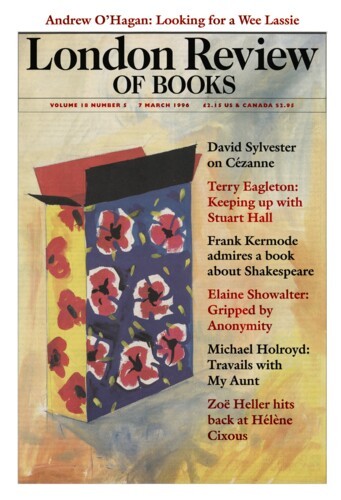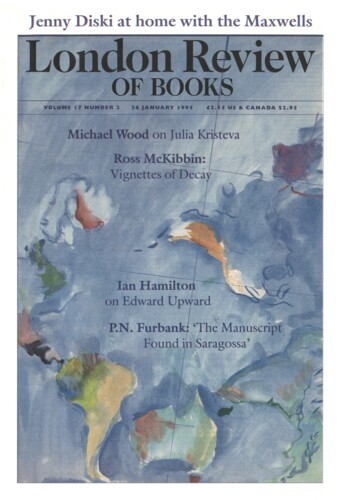Putting the Words into Women’s Mouths
Ruth Padel, 23 January 1997
In the 1640s, every musical household in Italy had a copy of ‘Ariadne’s Lament’, high-spot of Monteverdi’s Arianna and his most famous song. The lament expressed the opera’s theme: abandonment. Monteverdi called it Arianna’s ‘most fundamental part’. There have been many Ariadnes since. Cambert, Marcello, Porpora, Handel, Strauss: only Dido can challenge the number of times Ariadne magnetises ‘abandoned’ to her name. At the moment of the lament, Ariadne’s abandonment is fourfold. Two past abandonments: she abandoned her home and herself, for and to Theseus. Two in the present: abandoned by him, she again abandons herself, this time to her feelings in song. Her self-abandoned expression of abandonment is a hieroglyph of all four abandonings.





